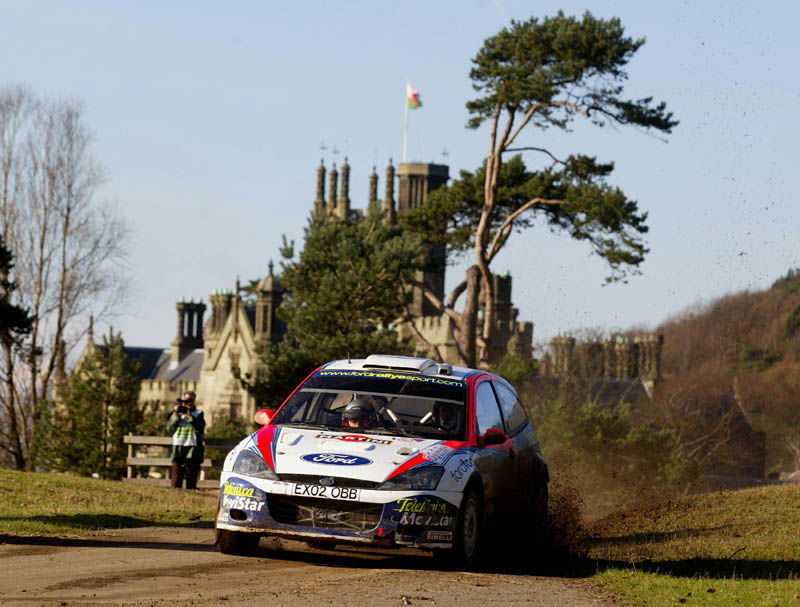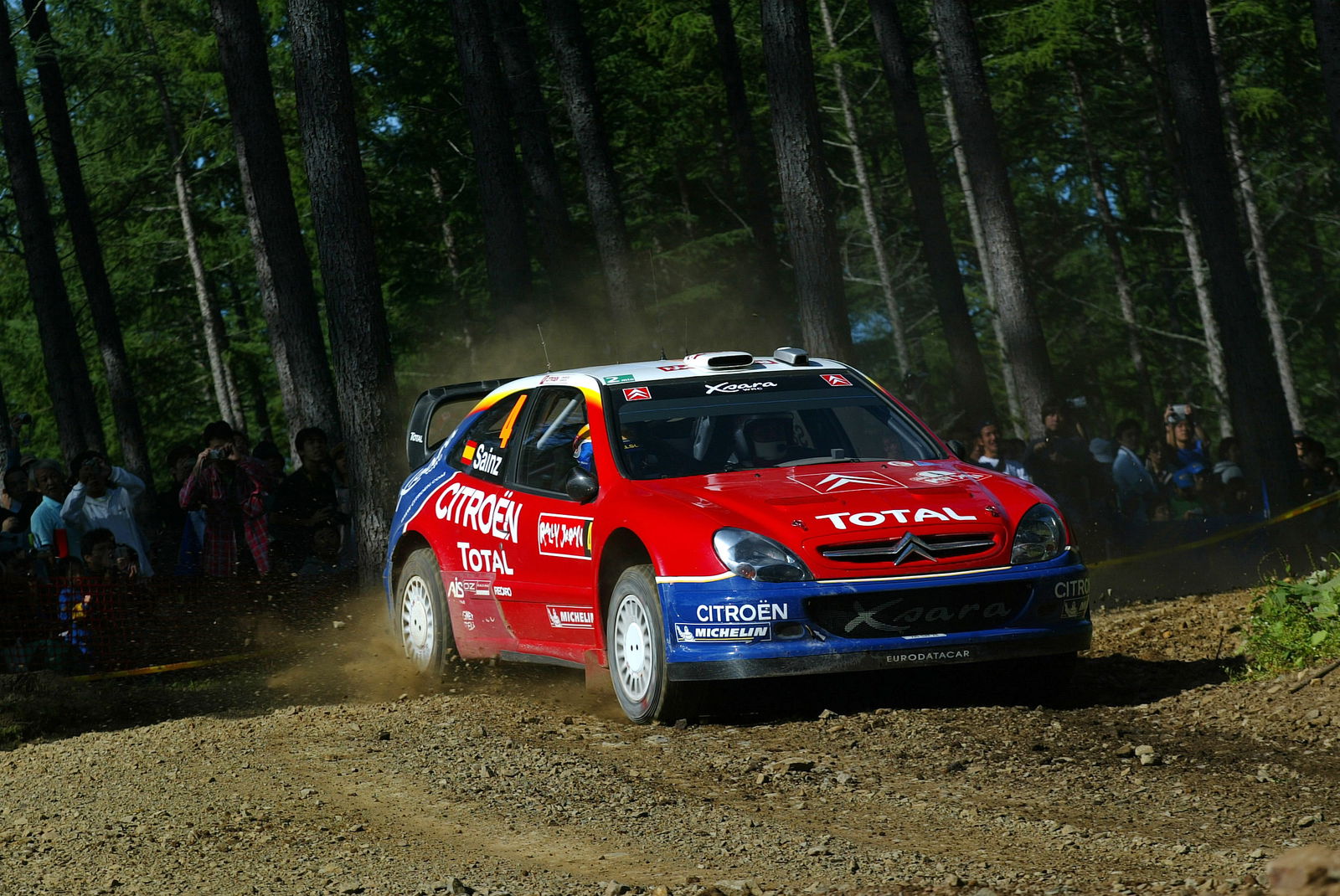Q&A: Daniel Carlsson.
Up-and-coming Swedish youngster, Daniel Carlsson has just signed a contract with Peugeot for 2005, here he talks about the forthcoming Rally GB on which he will drive a factory 307 WRC.
Q:
Has it always been your dream to be a rally driver?

Up-and-coming Swedish youngster, Daniel Carlsson has just signed a contract with Peugeot for 2005, here he talks about the forthcoming Rally GB on which he will drive a factory 307 WRC.
Q:
Has it always been your dream to be a rally driver?
Daniel Carlsson:
It would be a lie to say 'yes'. I might have a family name that is famous in the world of rallying, but I have no ties at all with the Carlssons who competed in the 1960s. Although my parents weren't all that interested in motor sport, I was bitten by the competition bug at the tender age of five when I discovered motocross just after learning to drive the tractor on the family farm. I went on to do all the sports that are popular in my country - football, tennis, ice hockey... - but it was only at the age of sixteen or seventeen that I really took an interest in rallying.
Q:
How did you start in the sport?
DC:
I took part in my first rally at the age of twenty and won it driving a rear-wheel drive Volvo. It was a good way to learn at the time! Since then, I have competed in something like eighty rallies, including ten or so at WRC level, with a Toyota Corolla first of all, then a Peugeot 206. The 307 WRC is the third top-flight rally car I have had the pleasure to drive after getting in two days of testing upstream of Rally GB.
Q:
When were you first contacted by Peugeot?
DC:
After last year's Rally Finland, that is to say one year prior to my contract with the factory team for 2005. My great programme this season with the Bozian 206 WRC - which features Sweden, New Zealand, Greece, Turkey, Finland and Germany - was put together at the end of last year. It was a fantastic Christmas present, and now I will compete in Rally GB with a works 307 WRC, something I wouldn't have dared dream of.
Q:
What experience have you gained from the six rallies in which you have competed so far?
DC:
I have learnt so much in a number of areas, beginning with experience of the stages, especially on those rallies that were new to me. I have also learnt to get the most out of a World Rally Car. At the same time, along with Mattias Andersson who has been my co-driver for three years, we have worked hard to adapt my pacenote system to such a fast car. Without changing much in the way we actually take the notes, we have concentrated more on simplifying them to favour the speed at which Mattias can read them back.
Q:
In driving terms, was the switch from a Super 1600 to a World Rally Car difficult?
DC:
My driving style functions with every type of car, and I didn't have too much of a problem adapting to four-wheel drive. A WRC car is in fact easier to drive and more progressive than a small front-wheel drive machine in which you have you have to keep your foot to the floor all the time. That makes driving pointy and you can occasionally find yourself with the odd 'situation' to deal with. WRC cars are much faster, but their braking ability, engine flexibility, suspension performance and all-wheel drive are all a function of that fact.
Q:
What have been the most astonishing or most difficult aspects of a WRC car that you have had to get accustomed to?
DC:
The scenery naturally jumps at you much more quickly, so you have to stay extremely concentrated all the time. Strangely enough though, you still have to brake earlier because the corners come so fast. I am also really amazed by the robustness of WRC cars and their performance on very rough ground. The pace at which you can push a 206 WRC on events like the Acropolis Rally is simply incredible. Michelin's ATS system also means you can cut well into corners and soak up the punishment the stones can cause the tyres!
Q:
Working with Bozian has given you an insight into the way French teams operate.
DC:
I have seen that they love their food. In Sweden, except for special occasions, we tend to make do with quick, simple food whereas the French see good meals as part of day-to-day life. But what really has impressed me is the amount of work they put in and the motivation of everyone in the team. There is no difference whether you're a French, Swedish or Norwegian crew. They work flat out to obtain the best result possible. Everything is done to ensure that the language barrier is not a handicap. Everyone gets on well together in a nice atmosphere, but that doesn't prevent them from being effective. As for me, I enjoy a good laugh too, and a small glass of wine from time to time.
Q:
In what areas do you think you can still improve?
DC:
It would be nice to begin by finishing rallies in a good position and by staying on the road, although there were attenuating circumstances to my accident in Germany: the stages were terribly treacherous and other more experienced drivers also went off. At the end of the day, I think I can be quick, but I must succeed in being more consistent, in keeping up a pace over the full duration of a rally. It's no doubt a question of concentration and experience. Being a factory driver with Peugeot next year will doubtlessly mean I can spend more time behind the wheel of a WRC car, whether that be in testing or on events. In any case, that's what I need.
Q:
What are your expectations for your first outing as part of a works team with the 307 WRC on Rally GB?
DC:
I already know a number of people from the factory team but it will be nice to spend Rally GB week with the whole squad. There is no special pressure on me. I have already signed my contract for 2005, so I know this event will not condition the rest of my career. I want to have a long term association with Peugeot, so I will give it my very best and we will see what sort of result we get.

